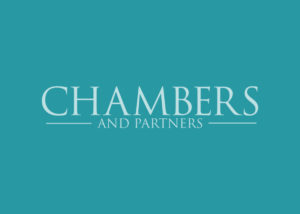Property and Business Interruption Insurance Claims – 21 Practical Pointers
By Gary Thompson
Historically, insurers have fought hard to minimize commercial insurance claims following a major catastrophe. Policyholders are advised to be proactive in claiming their rights under policies. Resolution is achievable, but usually with hard work and patience. Here is a list of some practical pointers that most commercial policyholders should consider:
First, Protect and Preserve the Assets. Emergency and temporary repairs should be documented and, if practical, reviewed with the insurer in real-time.
Attend to Notice and Timing. Make sure all notices have been issued to all insurers that could be called to pay. If the Policy requires a Proof of Loss within 30-days, obtain a written extension. Spot any other time-related policy requirements.
Reserve All Rights. Generally, reserve all rights and contentions. Do not allow the insurer to begin to classify or characterize your claim before you have had a full opportunity to review everything. If you let them, the insurers will dictate your claim to you.
Form a Team. Form a team of all personnel involved in the claim and hold regular team calls or meetings. Review the Policy with counsel. The Policy is filled with ambiguities and potential pitfalls, and case law may be instructive. The insurer may hire an adjuster, consultants, and accountants. Consider leveling the playing field by hiring your own adjuster, consultants, and accountants. Many policies cover some of these claim preparation costs.
Be Wary of Deductibles and Sublimits. Proceed carefully before taking a position.
Look for Other Policies. Some properties are insured under other policies, like a “deductible buy-down” policy or a National Flood Insurance Program policy. Limits under these policies may offset the deductible that otherwise applies under the main “all risk” policy.
Seek Money Early. Begin to negotiate for advances immediately. If you do not ask, the insurers will not pay.
Communicate. Develop relationships at all levels of your team with their respective insurer-side counterparts. Seek cooperation, dialogue, and communication.
Document. Keep exact and tedious records of all communications, meetings, and exchanges. Keep submitting documentation. If insurers state that they have not received sufficient documentation, challenge them to be specific.
Attempt to Involve Insurers Before Repairs. Attempt to obtain insurer approvals before repair and replacement of property. Be aware of insurers’ right to salvage property. If insurers are silent or non-responsive in the face of repair decisions – as is often the case – document it for the record. They should not be allowed to second-guess the decision after the fact.
Replacement Cost New Means Replacement Cost New. Most policies value property on an RCV basis. By definition, what is old is being replaced with something new. This is a natural “upgrade.” Be wary of insurer pronouncements that the damaged property had “preexisting” defects or wear and tear.
Do Not Forget Code Upgrades. Most policies cover code upgrades. Be aware of the underlying codes and whether they will increase repair costs. Capture all such costs in your claim. This is another “upgrade” provided by the policy.
Review Causation. Coverage, sublimits, and deductibles can be affected by determinations as to whether the damage was caused by the covered peril, or by one type of peril versus another. Carefully review causation issues before presenting your claim. The “efficient proximate cause” rule generally captures coverage for any repairs that would not have been made but for the event.
Undamaged Property May Be Covered. Many policies contain a “pair and set” clause. Depending on the wording, this may mean that if some of the FF&E in a room is damaged, there may be coverage for replacement of the full “set” in the room in order to maintain uniformity of décor.
View all exclusions or limitations on coverage strictly and narrowly. That is the standard under the law. For example, mold exclusions are narrowly construed.
Accounting. Set up accounting codes or other processes to track all invoices, costs, expenses of any kind related to the claim, by various categories – e.g., emergency expenses, permanent repairs, claim preparation expenses, etc. It should be easy to chart claim numbers.
Prepare the Business Interruption and Extra Expense Claim Carefully. This is an area where specialized forensic accountants are needed. Insurers will challenge attempts to recognize net profit for an interruption period where revenues are trending upward. Utilize experts who can draw on market data to prove up the trending analysis.
Be Aware of Lender Requirements. If there is a loan for the hotel, reviewing the Loan documents closely. There will be insurance-related provisions. Proceeds may need to go into special accounts. Communicate with the lenders and keep them updated.
Review Other Agreements That Can Affect The Claim. There may be any number of agreements that can impact a hotel claim – a ground or space lease, a propety management agreement, a franchise agreement, a condominium association agreement, rental agreements with tenants, etc.
Work Towards Resolution. All claims should settle. If yours does not, make sure it is only because the insurer is being unreasonable and that the record makes this obvious – so that if you do end up in litigation, it will be apparent that you gave the insurer every opportunity to adjust the claim based on the facts, and that the insurer chose to be aggressive and unreasonable.
Draw on the Business Side. Insurance is a product that is expensive. You should expect fair treatment on the claims side. Business contacts, such as between risk managers, brokers, and insurance marketing executives, should be explored. If the insurer does not live up to its end of the contract, consider renewal with a different insurer. Ultimately, that is the only check on insurer claim behavior. Notice which insurers are most frequently mentioned as being overly aggressive with their policyholders. Consider avoiding those insurers.




